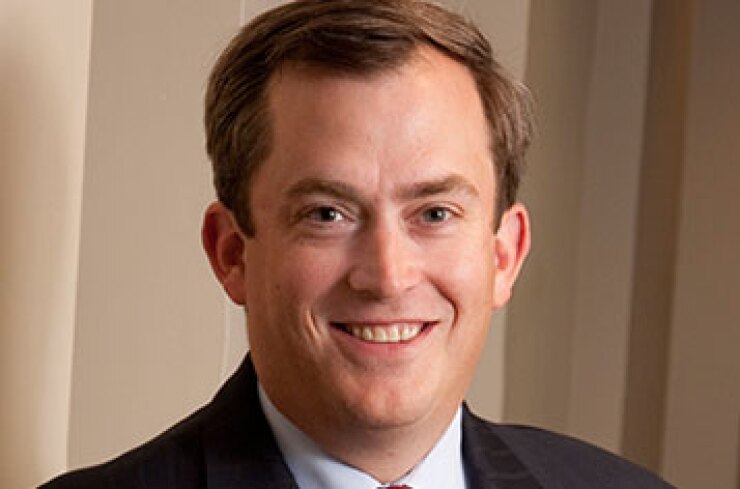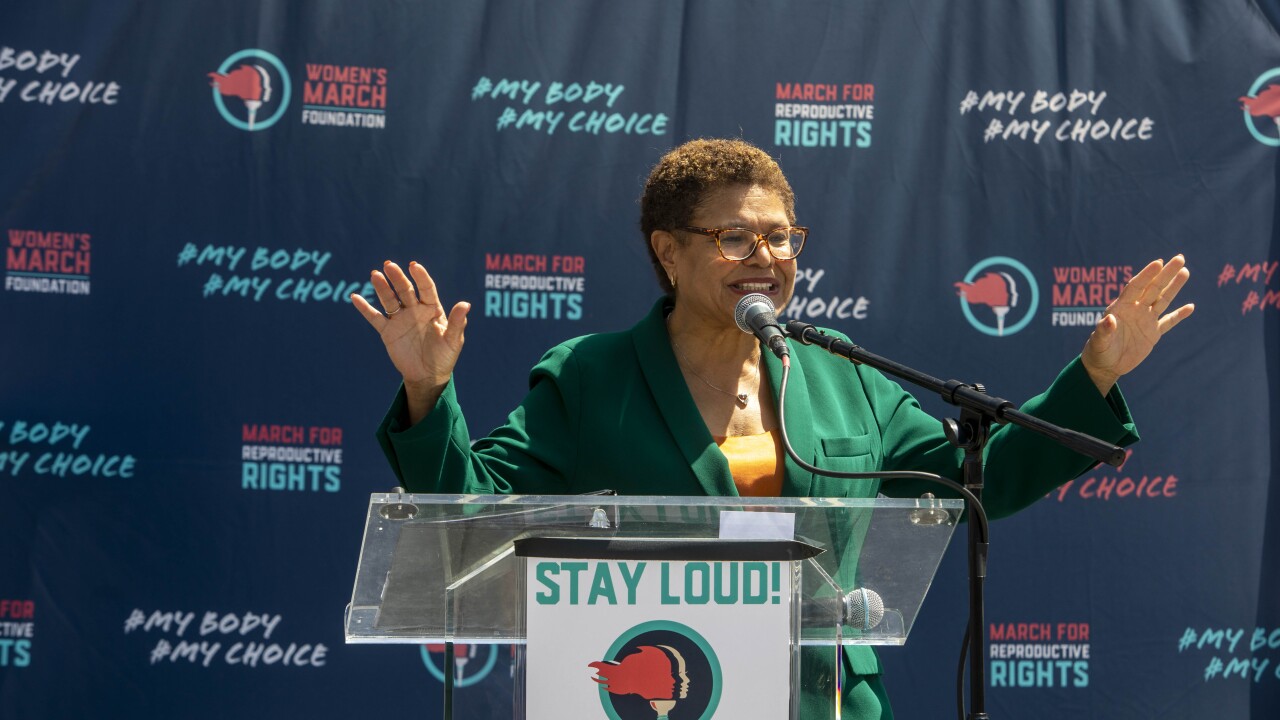
BRADENTON, Fla. - Persuading Atlantans to vote for increased sales taxes to pay for transit improvements could be a difficult task.
It's a challenge that Metropolitan Atlanta Rapid Transit Authority leaders say they plan to undertake in the months ahead of the Nov. 8 general election.
Atlanta voters will be asked to approve a half-cent sales tax increase over the next 40 years to support MARTA's first major expansion effort since the transit agency first began laying track in 1975.
If approved, the tax is expected to raise $2.5 billion.
The revenue it raises will go toward the authority's $6.11 billion capital program for high capacity rail, bus, and pedestrian improvements. About $2.88 billion of the cost, or 47%, is expected to come from federal funds.
MARTA plans to leverage a portion of the sales tax with bond financing, according to Robbie Ashe, chairman of MARTA's board of directors and an attorney with Bondurant Mixson & Elmore LLP in Atlanta.
"One reason we sought long-term authority [to impose the tax] was so we could bond against the authorization, but in terms of specific amount or duration that remains to be seen," said Ashe, who also helped Hartsfield-Jackson Atlanta International Airport establish a commercial paper program and assisted with development of Atlanta's water and sewer bond program.
MARTA isn't the only one planning to ask local voters to give more.
On the same Nov. 8 ballot, the city of Atlanta will ask voters to approve another half-cent increase in the sales tax to fund road and pedestrian projects over the next five years.
The tax hike is expected to generate up to $320 million over the five-year period it is collected in the city limits.
"Our task now is to communicate what we're thinking and why, and to be open to feedback," Ashe said, adding that it will be a "challenge" communicating information about the two half-cent sales taxes on the ballot to voters.
He said MARTA has worked closely with city officials, including Mayor Kasim Reed, to coordinate projects designed to increase connectivity throughout the city and the region.
Atlanta is the heart of the ninth-largest metropolitan statistical area in the nation with an estimated population of 5.7 million in 2015, according to the U.S. Census Bureau.
The Atlanta-Sandy Springs-Roswell MSA region is home to 13 Fortune 500 companies, the third-highest concentration in the country, according to Moody's Investors Service.
Downtown Atlanta-headquartered Delta Air Lines is 68th on the Fortune 500 list, and it's also the top carrier at Hartsfield-Jackson Atlanta International Airport, the world's busiest airport.
When it comes to moving commuters, residents and visitors, the region often experiences gridlock.
For metro Atlanta, the stakes are high in November.
City voters rejected a 10-year, 1-cent sales tax increase in 2012 that would have funded major transportation and transit projects.
MARTA and city leaders say they hope this November will be different, and that voters will agree to provide the funding necessary to address long-standing transportation needs.
"The No. 1 complaint we get about MARTA is there's not enough of it," Ashe said. "We have a geographic constraint in terms of rail operations."
MARTA, the ninth-largest rapid transit system in the United States, transported about 136 million passengers in fiscal 2015. The bus fleet currently consists of 565 air conditioned vehicles operating 92 routes. MARTA's heavy rail operation consists of 47.6 miles of double track that is configured in an x-y axis pattern operating east-to-west and north-to-south.
Some $6 billion of the capital plan includes the addition of light rail service to infill areas that heavy rail service doesn't cover, transforming the network into more of a spider web configuration and provide riders more options.
While there will be new investment in the bus system to broaden the transportation network, expanding rail options will make bus rides shorter, Ashe said.
Although the capital plan totals $6.11 billion, he does not envision that MARTA will use public-private partnership contracts to finance the work.
Though all financing options will be considered, he said P3s probably won't be used because the 40-year sales tax will provide long-term bonding capacity.
"Given the tax capacity we hope to receive, it will be cheaper for us to pursue construction financing through the bond market," Ashe said.
If the sales tax increase passes, he said it will allow MARTA "to finance a radical transformation in how we deliver transit across Atlanta and set up further regional transportation expansion."
Atlanta, along with Fulton, DeKalb, and Clayton counties, already pay a one-cent sales tax to support MARTA.
It is in effect until June 30, 2057.
MARTA had $2.07 billion of outstanding revenue bonds backed by its existing sales tax as of June 30, 2015. Proceeds have been used to finance capital needs for the existing system.
The authority's third indenture bonds, under which it currently issues debt, are rated AA-minus by Fitch Ratings, Aa2 by Moody's Investors Service, and AA-plus by S&P Global Ratings.
About $215 million of MARTA's debt is outstanding under first and second indentures for which the liens are closed and no new issuance anticipated.
If voters approve both half-cent sales tax increases in November, Atlanta's sales tax rate will rise to 9% - the highest in the state.
Ashe said the opportunity that the referendum poses for the future of Atlanta's transit system is huge for voters and prospective investors.
"The credit markets will be an important part of that," he said.
In Florida, several local governments also plan to ask voters to lean on the sales tax to finance backlogged transportation and infrastructure projects.
Broward County is planning to ask for a one-cent sales tax increase over 25 years on the November ballot. If passed, the local sales tax would increase to 7 cents on the dollar, and generate about $11.5 billion.
Half the money would be used by the county for transportation and the remainder would go to municipalities for infrastructure improvements.
In Palm Beach County, voters will be asked Nov. 8 to increase the county's sales tax by a penny for 10 years.
The 1-cent increase would increase the local sales tax to 7 cents, and raise a total of $2.7 billion for roads, bridges, schools, government buildings, and low income housing.
The funds will be split among various entities. The Palm Beach County school district will receive $1.35 billion, the county will get $810 million, and $540 million will be divided between 38 municipalities.
St. Lucie County also plans to ask voters for a half-cent sales tax increase over 20 years to finance road, water and municipal projects.
If the referendum passes, the sales tax would increase to 7% from 6.5%.
The county would get just over 50% of the tax proceeds, while the rest of the money would be distributed to municipalities.





